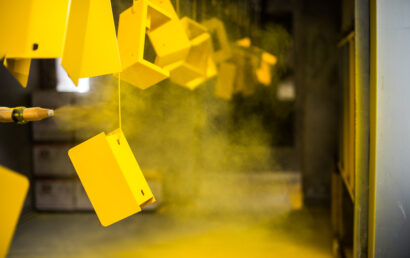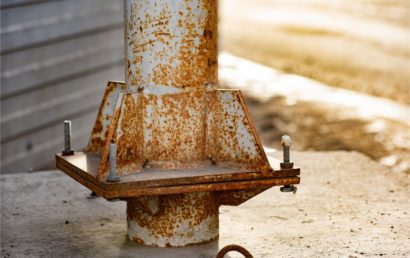What You Need To Know About Powdered Metal Corrosion
Frequently used in manufacture of filtration media, components, housings, etc., powdered metal materials provide an economical process for manufacturing and a controllable porous nature. On the other hand, when compared to their cast or wrought iron counterparts, they don’t particularly show/have the same physical and chemical features. The result? Due to powdered metal corrosion, steps need to be taken to assure its stability and longevity.
The Making of Powdered Metal
When, just below their melting points, metal powders are heated and compacted, this metal forming process is referred to as powder metallurgy.
Powdered metal is created by blending additives and a fine iron metal. Some of the additives in this process can be copper, carbon, and/or wax lubricant and nickel. Though the others are clearly metals – so it’s easier to understand why they would be used – the question does arise: Why wax lubricant? When powdered metals need to be pressed into desired shapes, the wax lubricant makes it possible to press them into the required die.
An Example Of Powdered Metal Use
To provide corrosion resistance and mostly applied through spray on applications, tin powders (SW and M grade) have shown much promise. In the making of self-lubricating bearings and high-powered magnets, they have also been used.
Additionally, incredibly versatile is zinc powder. To manufacture galvanized steel it is frequently used, as well as to create brass.
Sintering
To impart integrity and strength, applied to a powder compact is a treatment known as sintering. Somewhere below the major constituent’s melting point (of the powder metallurgy material), is where the sintering temperature lies.
Why Use Powdered Metal Corrosion Protective Coatings?
Powdered metal, and the use of it, has many benefits. Here are some of its best qualities:
- Cost-effective.
- In critical applications, provides long-term performance reliability.
- Suited to high-volume and moderate volume component production requirements.
- Compared to other metalworking processes, in which case it is impossible or impractical to manufacture unique or complex shapes, powdered metal facilitates this need nicely.
- For filtration or self-lubrication, provides controlled porosity.
- For increased wear resistance or increased strength, the materials provided may be heat treated.
- A good surface finish is produced.
- A wide variety of alloy systems is permitted.
- Typically minimizes scrap loss.
But There Are Disadvantages As Well
Powder metallurgy is not without its problems, however. Here are some of the drawbacks:
- During the sintering operation, cadmium, tin, zinc, etc. metal powders create thermal difficulties because they have a low melting point.
- Zirconium, titanium, magnesium, aluminum, and other powders presents risk of explosion and fire in a finely divided state.
- Density products are hard to produce because uniformity is high.
- Compared to parts produced by forging, these have lower strength and ductility.
- With a PM process, complex or large parts are hard to produce.
- Especially a problem when small production volumes are required, the cost of equipment and tooling tends to be high.
- Compared to the cost of raw materials for forging or casting a component, that of metal powders is higher.
Are Powdered Metals Appropriate for Your Application?
So, the question remains: For your industry and specific requirements, is the use of powdered metals appropriate? Maybe. But maybe not. The good news is that for the treatment of multiple parts, components, surfaces, etc., there are far more choices than just powdered metals that have corrosion issues. If you’re not sure what type of coating to use, confer with the experts at A&A Coatings.
For over 7 decades, where the thermal spray coating industry is concerned, we have been and remain at the forefront. Our technicians are exclusively devoted to the application of cermet, hard faced, metal, and ceramic coatings. With all of the creatable coatings and application procedures we have available, there is a process that will be a perfect fit for your needs. Contact us today with any questions or to schedule an appointment.



